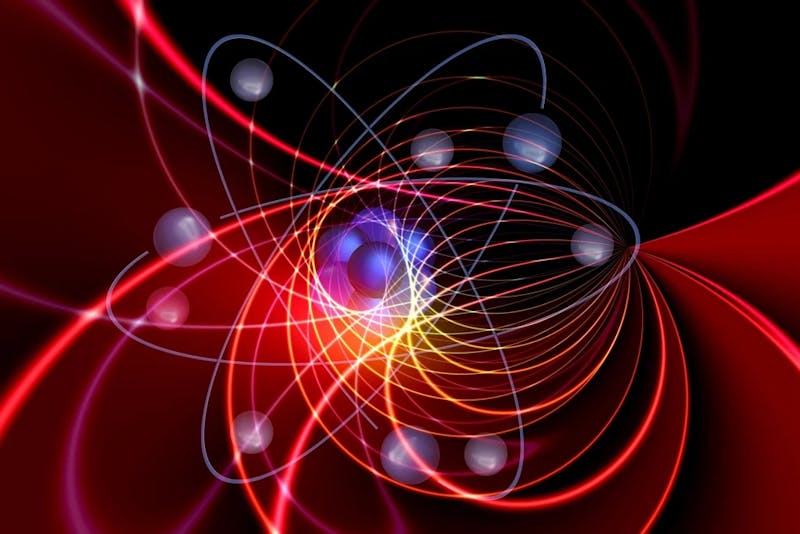Science
Nobel Prize in Physics 2025 Awarded for Breakthrough in Quantum Mechanics

On November 8, 2025, the Nobel Prize in Physics was awarded to John Clarke from the University of California, Berkeley, Michel H. Devoret from Yale University and the University of California, Santa Barbara, and John M. Martinis, also from the University of California, Santa Barbara. The trio received the prestigious accolade for their groundbreaking work on “the discovery of macroscopic quantum mechanical tunneling and energy quantization in an electric circuit.” This recognition coincides with the declaration of 2025 as the International Year of Quantum Science and Technology, marking a century since the inception of modern quantum mechanics.
Understanding Quantum Mechanical Tunneling
Quantum mechanical tunneling, a complex phenomenon, requires a grasp of the fundamental principles of quantum mechanics. Unlike classical physics, where particles are located at specific points, quantum mechanics describes particles as existing within a range of probabilities regarding their position. According to Schrödinger’s equation, there is a non-zero probability that a particle can traverse a barrier, even if it lacks the requisite energy to overcome it. This effect allows particles to penetrate barriers that would otherwise be insurmountable, akin to the idea of walking through a wall.
Historically, the concept of quantum tunneling was first recognized in 1973 when a Nobel Prize was awarded for the tunneling of individual particles. While this early work laid essential groundwork for innovations such as quantum computers and scanning tunneling microscopes, it was limited to microscopic applications. The recent research by Clarke, Devoret, and Martinis marks a significant advancement by demonstrating quantum tunneling on a macroscopic scale, involving currents composed of millions of electrons.
Implications for Technology and Future Innovations
The implications of this discovery are vast and potentially transformative across numerous sectors. Quantum computers are already celebrated for their ability to solve complex problems at speeds unattainable by conventional computers. The principles of quantum mechanical tunneling can enhance these systems, improving their capacity for intricate calculations. Furthermore, the applications extend to modern quantum technologies including quantum cryptography, which promises highly secure communication, and quantum simulations that could model complex medical, chemical, and biological systems.
Industries ranging from semiconductor manufacturing to finance and logistics are likely to benefit from these advancements. As the understanding of macroscopic tunneling deepens, it is expected to usher in a new era of innovation, enhancing efficiency and sparking new discoveries driven by quantum mechanics.
In response to the announcement, Peter Seelman, a physics major at the Whiting School of Engineering, expressed his enthusiasm. “Having just given a presentation on the math behind the prize for a physics class, it still feels like magic, but it’s justified magic,” he stated in an email to The News-Letter. “The laureates ran experiments that took this quantum phenomenon and expressed it in a macroscopic circuit large enough to be held in your hand. I love physics because it’s the study of the magic behind the universe, and experiments like these that examine the ‘why’ and the ‘how’ of that magic are doubtless worthy of this great honor.”
The awarding of the Nobel Prize to Clarke, Devoret, and Martinis not only celebrates their significant contributions but also highlights the ongoing evolution of quantum science, which continues to captivate researchers and the public alike.
-

 Lifestyle4 months ago
Lifestyle4 months agoLibraries Challenge Rising E-Book Costs Amid Growing Demand
-

 Sports3 months ago
Sports3 months agoTyreek Hill Responds to Tua Tagovailoa’s Comments on Team Dynamics
-

 Sports3 months ago
Sports3 months agoLiverpool Secures Agreement to Sign Young Striker Will Wright
-

 Lifestyle3 months ago
Lifestyle3 months agoSave Your Split Tomatoes: Expert Tips for Gardeners
-

 Lifestyle3 months ago
Lifestyle3 months agoPrincess Beatrice’s Daughter Athena Joins Siblings at London Parade
-

 World3 months ago
World3 months agoWinter Storms Lash New South Wales with Snow, Flood Risks
-

 Science4 months ago
Science4 months agoTrump Administration Moves to Repeal Key Climate Regulation
-

 Science3 months ago
Science3 months agoSan Francisco Hosts Unique Contest to Identify “Performative Males”
-

 Business4 months ago
Business4 months agoSoFi Technologies Shares Slip 2% Following Insider Stock Sale
-

 Science4 months ago
Science4 months agoNew Tool Reveals Link Between Horse Coat Condition and Parasites
-

 Sports4 months ago
Sports4 months agoElon Musk Sculpture Travels From Utah to Yosemite National Park
-

 Science4 months ago
Science4 months agoNew Study Confirms Humans Transported Stonehenge Bluestones









